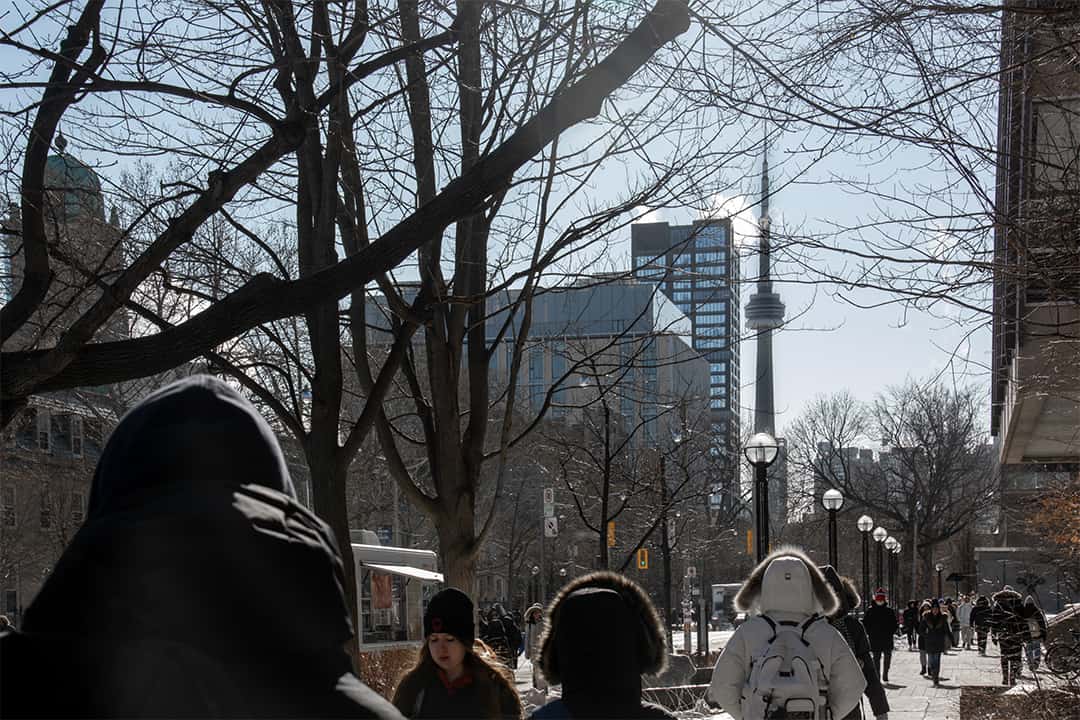On January 31, the University of Toronto Graduate Students’ Union (UTGSU) held its monthly Board of Directors (BOD) meeting. During the meeting, the members passed a motion to allow the union to hire a Chief Returning Officer (CRO). The BOD also viewed a presentation from Bikechain, U of T’s non profit bike repair shop, during which the shop proposed a referendum asking students to increase the shop’s levy beginning in the 2023–2024 academic year.
Elections hiring
The meeting began with the introduction of the UTGSU’s new executive director, Levi Clarkson, who was hired in January 2023.
The BOD then launched into a discussion about the selection process for members of the Elections & Referenda Committee, the committee tasked with hiring a CRO to administer elections.
According to the UTGSU bylaws, the committee must include the executive director (as a non-voting member), a previous member of the Elections & Referenda Committee, and one other member of the BOD. However, several vacancies across the UTGSU BOD, as well as multiple debates about completing a by-election process without violating their own bylaws, delayed the committee’s formation.
BOD member Avinash Mukkala nominated themselves for the committee, but two seats remain unfilled. At the meeting, the BOD put forward a motion that assigns the executive director with the responsibility of finding candidates from the UTGSU general membership to fill the vacant spots on the committee. This new process now allows graduate students outside of the BOD to be nominated for these positions. The executive director will then bring the committee candidates forward for BOD approval at the February meeting. The BOD approved the motion with some abstentions.
Danielle Karakas, vice-president academics and funding for the School of Graduate Studies (SGS) divisions 3 and 4, further amended the resolution to task the Elections & Referenda Committee with beginning the selection and hiring process for the CRO as soon as possible, following its formation.
“We need a CRO for an election, as some of you may know. This has been a continuous issue, so we’re really excited at the idea of wrapping this up and hiring the CRO,” Karakas told the BOD. The CRO has a necessary position for the election process as, according to the bylaws, they make sure all of the nomination papers are valid, advertise any nominations and the elections, and resolve any issues candidates may have throughout the nomination, campaign, and election process.
Bikechain referendum
Two representatives from Bikechain, Beth Austerberry and Gabriella Christopher, presented their organization’s referendum question for the BOD’s approval.
Bikechain is a bicycle shop that offers repairs by appointment, free bike rentals, parts for sale, and a workspace where students can repair their bikes. The shop is at 230 College Street, in the building that also houses the new UTSU Student Commons.
The referendum would ask students belonging to the UTGSU to support increasing the Bikechain fee from $0.60 to $1.50 per year for full-time graduate students and from $0.30 to $0.75 for part-time graduate students beginning in fall 2023.
In their presentation, Christopher explained that the current levy paid by UTGSU members began in 2010 and only became indexed to the cost of living in 2013. The proposed new fee amount is in accordance with the increased cost of living.
Christopher explained that Bikechain has experienced the negative effects of inflation and could only continue providing low-cost services if students decided to increase the levy. They said that increasing funds would allow Bikechain to employ more people to increase their offerings, while also compensating their staff more fairly.
The BOD voted on whether to present the referendum question to the membership as a “Yes or No Campaign” or an information campaign. According to the UTGSU Policy Handbook, Yes or No Campaigns are to be used if “there are clear or likely divisions within the membership regarding an issue that is to be put to referendum.” For such campaigns, little additional information is provided to voters. For an information campaign referendum, voters receive an unbiased overview of the issue.
UTGSU President Lwanga Musisi argued that the union should present the referendum question as an information campaign, since the UTGSU has historically put forward referenda from levy groups as information campaigns. After two rounds of voting, the BOD approved the referendum question for inclusion as an information campaign in the upcoming election.


